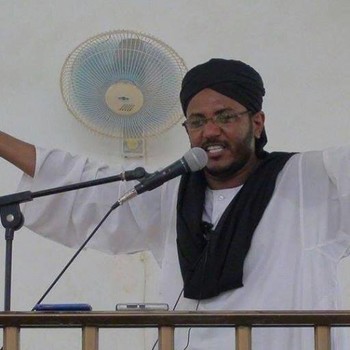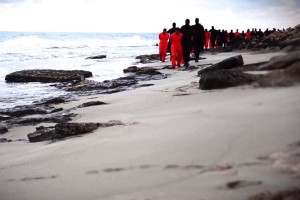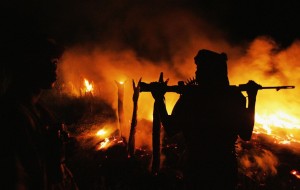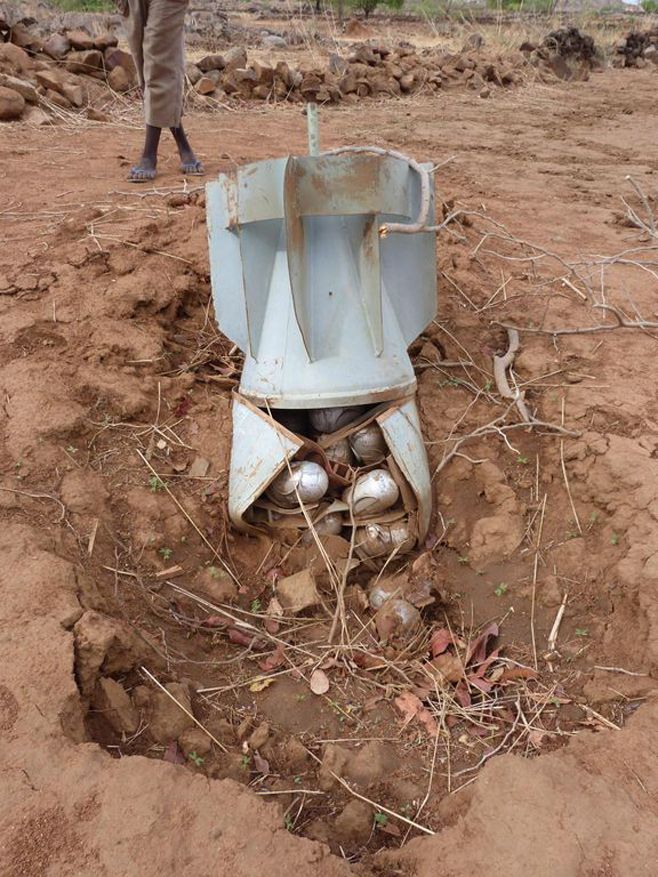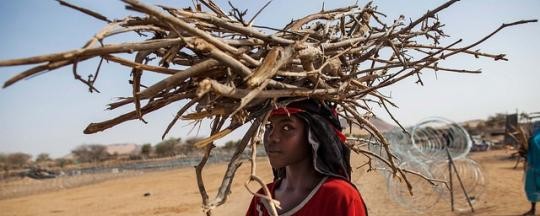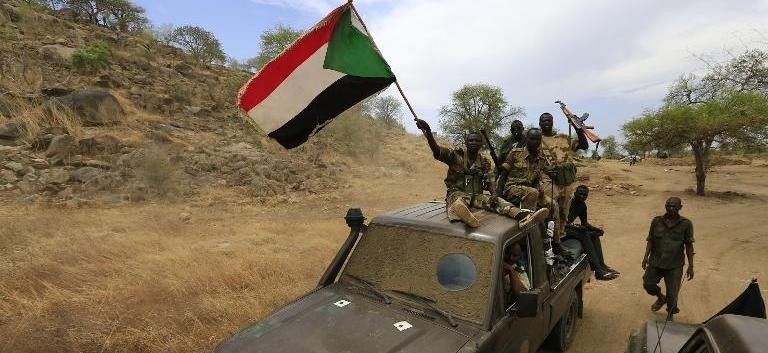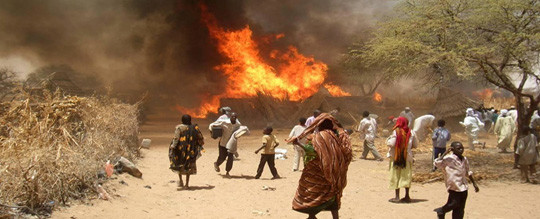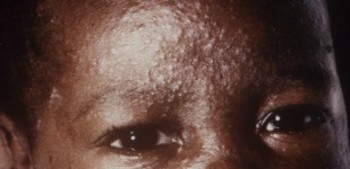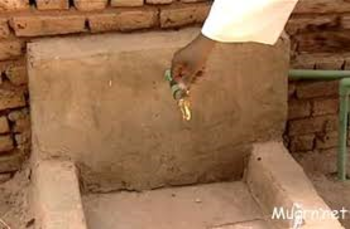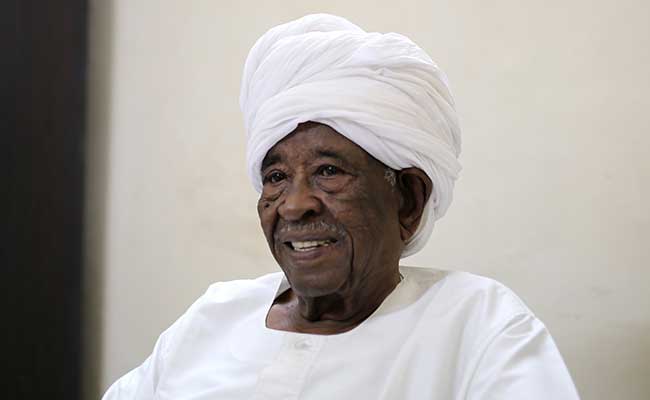This nineteenth installment of Darfur: Radio Dabanga News Digest has as its primary concerns the growing water crisis throughout Sudan, but hitting Darfur especially hard, and the relentless deterioration of security and humanitarian conditions in Darfur. There are also a number of significant political developments reported—including increasing censorship of news reporting—as well as growing civil unrest. The consequences of economic implosion in Sudan are also evident in many dispatches. Sudan Tribune has again been the source of several key reports on Darfur and the growing political crisis.
[For previous (weekly) Radio Dabanga Digests, see:
Darfur: Radio Dabanga Digest, Number 1 | http://wp.me/p45rOG-1CD
Darfur: Radio Dabanga Digest, Number 2 | http://wp.me/p45rOG-1De
Darfur: Radio Dabanga Digest, Number 3 | http://wp.me/p45rOG-1Dt
Darfur: Radio Dabanga Digest, Number 4 | http://wp.me/p45rOG-1Ei
Darfur: Radio Dabanga Digest, Number 5 | http://wp.me/p45rOG-1EL
Darfur: Radio Dabanga Digest, Number 6 | http://wp.me/p45rOG-1Fp
Darfur: Radio Dabanga Digest, Number 7 | http://wp.me/p45rOG-1FL
Darfur: Radio Dabanga Digest, Number 8 | http://wp.me/s45rOG-6452
Darfur: Radio Dabanga Digest, Number 9 | http://wp.me/p45rOG-1Gi
Darfur: Radio Dabanga Digest, Number 10 | http://wp.me/p45rOG-1Gt
Darfur: Radio Dabanga Digest, Number 11 | http://wp.me/p45rOG-1Hq
Darfur: Radio Dabanga Digest, Number 12 | http://wp.me/p45rOG-1HY
Darfur: Radio Dabanga Digest, Number 13 | http://wp.me/p45rOG-1Ia
Darfur: Radio Dabanga Digest, Number 14 | http://wp.me/p45rOG-1II
Darfur: Radio Dabanga Digest, Number 15 | http://wp.me/p45rOG-1Ji
Darfur: Radio Dabanga Digest, Number 16 | http://wp.me/p45rOG-1JU
Darfur: Radio Dabanga Digest, Number 17 | http://wp.me/p45rOG-1Kp
Darfur: Radio Dabanga Digest, Number 18 | http://wp.me/p45rOG-1L7
Darfur: Radio Dabanga Digest, Number 19 | http://wp.me/p45rOG-1Lm —and below
The reports are organized under the following headings:
[1] THREE REPORTS OF PARTICULAR NOTE—these are highlighted not because they are related to one another, but because they are of particular note in understanding the security crisis in Darfur and the growing political crisis throughout Sudan
[2] RENEWAL OF UNAMID’S AUTHORIZATION, AND THE THREATS THAT CAN BE EXPECTED
[4] SECURITY BREAKDOWNS AND THREATS TO CIVILIANS IN DARFUR
[3] HUMANITARIAN THREATS, INCLUDING THE CONTINUING WATER SHORTAGE
[5] POLITICAL AND ECONOMIC DEVELOPMENTS THROUGHOUT SUDAN, INCLUDING:
Increasingly harsh news media crackdown
Growing signs of economic desperation
The growing number of radicalized Sudanese departing for Turkey and ultimately the ranks of ISIS in Syria
The continuing failure of the Doha Document for Peace in Darfur, and the Darfur
Regional Authority that emerged from the DDPD
[All emphases in all quoted material (in bold) have been added; all editorial comments are in italics, in blue, with my initials following; a useful and quite recent administrative map of Darfur appears here.)—ER]
Eric Reeves, 5 July 2015
(Darfur: Radio Dabanga Digest, Number 20 will appear on 19 July 2015)
THREE REPORTS OF PARTICULAR NOTE:
[a] Radical Sudanese Islamist re-arrested in Khartoum | July 1, 2015 | Khartoum
Mohamed Ali El Jazouli, Secretary-General of the Sudanese Tayar El Umma El Wahida radical Islamist group has reportedly been arrested again by security agents on Tuesday morning. The group is well-known in Sudan for its support of the Islamic State (IS). El Jazouli’s arrest came some days after he was released from a previous detention, according to a statement released by the group on social media without giving further details. The Islamist leader had been in prison for eight months for expressing his support for El Qaida and IS (El Daesh in Arabic). Directly after being released, the leader of the El Jereif Mosques founded by President Al Bashir in Khartoum, repeated his support for Islamic State forces fighting the “coalition of Arab crusaders.” He was arrested a few days after a number of medical students secretly left Khartoum to join ISIS in Syria.
Mohamed Ali El Jazouli
[As the Khartoum itself recognized in confidential discussions (see, for example, the leaked minutes of an August 31, 2014 meeting of senior military and security officials), radical Islam is a two-edged sword. This is especially true now that ISIS is a major concern of the U.S. and the Europeans, as well as African and Arab countries that have experienced violence at the hands of ISIS. We can’t be sure of why El Jazouli (also el-Gazouli) was released, although his continued imprisonment created tensions between the regime and the more outspoken Islamic radicals that are still a powerful political force in Sudan. But given Sudan’s extensive and deep relations with the world of radical Islam and indeed terrorists, boasted of in the August 31 meeting, El Jazouli’s immediate and unrepentant declaration of support for ISIS made for a voice that the regime did not want to have associated with Sudan, if only for appearance’s sake. For a Sudanese take on recent developments involving Khartoum and ISIS, see here—ER]
The sensitivities of the regime were on prominent display in another dispatch in which the spokesman for the Foreign Ministry accused officials in the regime of facilitating the travel of young Sudanese to Turkey and on to Syria (they have mainly been young medical students to date):
Spokesman: Top officials Sudan involved in sending IS-fighters | June 29, 2015 | Khartoum
Top officials within the Sudanese government are involved in recruiting young fighters for the Islamic State, says the spokesman for the Sudanese Ministry of Foreign Affairs, Ali El Sadig. His daughter is among at least 18 students who left Sudan for Syria last week. Five of them are carrying a British passport, two are Canadians, and others hold the American nationality. El Sadig was accused of supporting recruitment for the Islamic State (IS), called “El Daesh” in Arabic, but he fiercely denies any involvement.
El Jareeda newspaper quoting the spokesman was prevented from distribution after security officers confiscated its print-run this (Monday) morning.
Radio Dabanga reported that most of the 18 students travelling to Syria through Turkey are coming from the University of Medical Sciences and Technology in Khartoum’s El Riyad district. According to El Sadig the travel was an organised event with high officials involved, otherwise it would have been impossible for them to travel without being caught. Speaking to reporters at Khartoum Airport, the government official could not believe his daughter was among the IS-recruits. He went to the airport to see the exit documents and registration, but he could not find a single trace of his daughter on any registration paper. He explained that his daughter had no exit stamp as is needed for Sudanese to leave the country. She neither had a visa for Turkey or any other country. She had not been checked by the customs and immigration officers prior to boarding the aircraft.
When he had asked for evidence he was allowed to see the camera-recordings. He indeed saw his offspring entering the aircraft without anyone checking her. Ambassador Ali El Sadig expressed his anger saying he was sure that some high ranked people were involved, having paid bribes. He travelled on Sunday to Turkey to trace his daughter and to convince her to return to Sudan.
[This account—by someone from within the NIF/NCP—provides powerful evidence that despite a wish to keep firebrands like Mohamed Ali El Jazouli from speaking publicly, behind the scenes powerful officials within the regime are facilitating the exit of recruits to ISIS—ER]
The Khartoum regime materially supports the radical Islamist group New Dawn in Libya; here Islamic terrorists of unknown origin in Libya lead some twenty Egyptian Coptic Christians to be beheaded
[b] Foreign settlers continue to torch Darfur villages | July 3, 2015 | East Jebel Marra
More witnesses have reported newcomers from African countries torching abandoned villages in Darfur, to settle and take plots in the deserted areas. New settlers, “mostly foreign Arabs from Chad, Mali and Niger,” burned the entire village of Dalma, only leaving four houses standing, on Wednesday at 8pm. A witness in East Jebel Marra told Radio Dabanga that the settlers also continued to occupy Wadi Marra, Tayarat and Tabeldiyat villages in the region this week. People in East Jebel Marra have appealed to the state government in North Darfur, and the new Governor, to immediately take action to solve this problem.
An Arab militiaman watches a village go up in flames
On 19 June, Radio Dabanga reported that up to ten thousand settlers have taken plots in deserted areas in East Jebel Marra. The newcomers were identified by local pastoralists as members of Arab militias and migrants from Chad, Mali and Niger.
[Khartoum has for several years been allowing Arab settlers from other African countries to occupy the lands of displaced African farmers. This has disastrous implications for Darfur’s future, and as the displaced farmers well recognize, this makes nonsense of Khartoum’s purported policy of “voluntary resettlement” as a means to shut down camps for displaced persons. This policy is, in turn, driven by the regime’s desire to remove the rationale for an international humanitarian presence in Darfur—ER]
The Sudanese government said it considers a policy of voluntary resettlement of internally displaced people by shutting down their camps. The occupation of their home areas by foreigners contradicts does not guarantee for a safe return, displaced farmers told Radio Dabanga in a radio report.
[And yet there is nothing from the international community, including UNAMID and the Secretary General, about the deeply threatening nature of these occupations—ER]
[c] Lack of fuel in eastern Sudan’s El Gedaref puts harvest at risk | June 30, 2015 | El Gedaref
Farmers in El Gedaref state are complaining about a lack of fuel. They are concerned that the shortage of diesoline will lead to the failure of the current agricultural season. Speaking to Radio Dabanga, a farmer said that the price of a barrel of diesoline at the black market has risen to SDG750 ($124). “We are forced to buy the fuel for this price, as we need it to irrigate our crops. Yet, we fear that the agricultural season will not yield much this year.” The parliamentary caucus of El Gedaref will question the federal Ministers of Finance and Agriculture about the difficulties facing the farmers in the state. Independent MP Mubarak El Nur Abdallah, accused the government for not providing diesoline to the farmers so far. [The lack of diesel fuel at affordable prices is the direct result of an absence of foreign exchange currency (Forex) in the Central Bank of Sudan: the Sudanese economy is collapsing. Refined petroleum products (including not only diesel but cooking fuel) and wheat for bread, two of the most critical imports, are no longer available in adequate supplies, hence the growing number of shortages, breadlines, and exorbitant prices, a prelude to hyper-inflation—ER]
He further condemned the Shikan Insurance Company for demanding the amount of SDG24,000 ($4,000) from the farmers for the insurance of their crops. [This insurance demand is extortion in the face of hard times by farmers; few can afford such expense—ER]
The director of El Gezira Agricultural Scheme dismissed six “highly qualified engineers” earlier this month. “No reasons were given,” an angry farmer reported to Radio Dabanga. He said that the dismissal will “certainly affect the agricultural season.”
[It is highly likely that the Khartoum regime, which has nearly destroyed the agricultural sector in Sudan, has replaced these qualified engineers with political cronies or members of their families. That this further compromises agricultural production in a country with one of the highest malnutrition rates in Africa is of little concern to the National Islamic Front/National Congress Party—ER]
[1] UNAMID RENEWED BY THE SECURITY COUNCIL WITHOUT COMPROMISE
Sudan Tribune, Security Council extends mandate of UNAMID in Darfur with one year | June 29, 2015 | New York
The mandate of the UN-AU peacekeeping Mission in Darfur (UNAMID), with 15,845 military personnel and 1,583 police officers will be extended until 30 June 2016, as a consequence of Resolution 2228 on Darfur, unanimously adopted by the UN Security Council today. The resolution, drafted by the UK, was approved by all UN Security Council (UNSC) members, including China and Russia. A potential exit strategy of the peacekeeping mission is made entirely dependent on benchmarks rejected by the Sudanese government. This means that the UNSC has not accepted the demands of Sudan to schedule a gradual exit in the coming year. One of the benchmarks is the unhindered access of humanitarian aid. [It will be of interest to note whether the UN and UNAMID are serious about ensuring unhindered access for humanitarian relief; the record of UNAMID over the past seven and a half years offers little hope that this condition will be met; even today, there is no humanitarian access to large parts of the Jebel Marra area, as well as many others targeted by the regime—ER]
The Security Council condemns the fact that Khartoum is blocking the provision of humanitarian support to hundreds of thousand displaced in Darfur. Any change of policy will have to be authorised by the UN Secretary-General, and “be based on progress against the benchmarks and the conditions on the ground” while being “implemented in a gradual, phased, flexible and reversible manner.” In case some changes will be made due to progress, [but] it can be reversed in case the situation worsens again. [This represents a rare victory for the UN Security Council—and particularly its Western members—in standing up to pressure from Khartoum: the resolution as passed has all the key elements pushed for by advocacy groups, Darfuris, and anyone who truly understood the changes that Khartoum was pushing for in any re-authorization—ER]
The UNSC has confirmed that UNAMID has collected evidence of two air-dropped cluster bombs in Kirigiyati in North Darfur. The peacekeepers have disposed of the cluster bombs safely. The 2008 Convention on Cluster Munitions prohibits the use, production, transfer, and stockpiling of cluster munitions. It also requires destruction of stockpiles, clearance of areas contaminated by remnants, and victim assistance.
An unexploded cluster bomb, with its “bomblets” clearly visible; cluster bombs are the very embodiment of indiscriminate aerial attacks in Sudan
[Khartoum’s use of cluster munitions in Darfur—Human Rights Watch has already documented their use in South Kordofan—is entirely in character: it is a violation of a Convention that most nations have ratified (Sudan has not), it is wholly indiscriminate as a weapon of war, and the regime denies what has been fully verified—ER]
The accepted UN resolution also continues the mandate under chapter VII of the UN Charter. With regard to the protection of civilians, it calls on UNAMID to continue to move in the direction of a more preventive and pre-emptive approach, while engaging in effective and active patrolling in high risk areas, including in areas where large numbers of displaced took refuge. [Despite its mandate, UNAMID has failed to “move in this direction” since it officially took up that mandate in January 2008—ER]
Concerning humanitarian access, it calls for such access to be unhindered, safe and timely, while also noting the peacekeepers mission’s role in protecting humanitarian workers. Like last year’s resolution, the draft text paints a dire picture of the security and humanitarian situation in Darfur. It expresses deep concern over the deteriorating security situation in the region and its effect on civilians…. Aerial bombardments, criminality, banditry, inter-communal conflict, and attacks by government forces and rebel groups are among the factors noted that undermine the security of civilians.
Darfur displaced welcome extension of UNAMID term | July 2, 2015 | Kalma Camp
The people living in the Darfur camps for the displaced have welcomed the UN Security Council decision to extend the mandate of the UN-AU peacekeeping Mission in Darfur (UNAMID) for another year. Hussein Abu Sharati, the spokesman for the Darfur Displaced and Refugees Association, told Radio Dabanga from Kalma camp that the displaced and refugees welcome Resolution 2228, and call on the Security Council to strengthen the mandate of the peacekeepers, “so that they will be able to protect themselves and the people in Darfur in an effective manner.” He repeated the “utter rejection” by the Darfuris of the government’s demand that UNAMID leaves the war-torn western region. “The presence of UNAMID is urgently needed, until a comprehensive peace is achieved in Darfur, and security and stability have been restored. The UNAMID peacekeepers are then to be replaced by American or European protection troops.”
[While wholly understandable, given the performance of UNAMID to date, the plea for American or European troops to protect civilians in Darfur is impossible to imagine—ER]
Darfur displaced “utterly reject” exit of UNAMID | June 29, 2015 | Kalma Camp, South Darfur
Speaking from Kalma camp in South Darfur, [Hussein Abu Sharati, spokesman for the Displaced and Refugees’ Association] said that “the Darfuris are convinced that the real objective behind the government’s demands for the exit of the peacekeepers is the dismantling of the camps. “The Janjaweed militias, and the Rapid Support Forces commanded by the security apparatus, will then hunt down the displaced and annihilate them, as is happening today, but in a different way.”
Abu Sharati also pointed to the pressure on the displaced to return to their places of origin, “where insecurity is rife, and many villages are now occupied by the Arab militiamen and new settlers from abroad. On 19 June, Radio Dabanga reported that new settlers are occupying abandoned places in East Jebel Marra. According to reports from villagers, up to ten thousand newcomers have settled in their villages and taken their plots in the area. The newcomers are identified by local pastoralists as members of Arab militias and migrants from Chad, Mali and Niger. Several eyewitnesses spotted troops of the paramilitary Rapid Support Forces (RSF) roaming around to protect the new inhabitants. More than hundred thousand people in East Jebel Marra, mainly Fur, have fled from bombardments by the Sudanese Air Force and attacks by the RSF and other paramilitaries on their villages since the beginning of this year.
[These non-Sudanese Arab settlers are creating a powder keg of ethnic violence, and yet we hear of it only from Darfuris—ER]
UNAMID denies allegations of delaying Darfur’s disarmament process | June 29, 2015 | El Fasher
In a press release today, the UN-AU peacekeeping Mission in Darfur (UNAMID) has expressed its concerns about recent media reports in Sudan that the Mission has deliberately delayed assisting the Sudanese Disarmament, Demobilisation, and Reintegration Commission (SDDRC). UNAMID’s role in the ongoing disarmament, demobilisation, reintegration (DDR) process in Darfur is guided by the provisions set out in the 2011 Doha Document for Peace in Darfur (DDPD). The DDPD provides for UNAMID to support the SDDRC in its endeavour to disarm and demobilise former combatants from the Liberation and Justice Movement (LJM) and the Justice and Equality Movement breakaway faction, led by “Dabajo” Bakhit Abdallah Abdelkarim (JEM-Sudan).
UNAMID agreed, in principle, to assist with the ex-combatants identified by the Abuja Agreement [2006], provided that the Commission presents a complete master list of potential combatants to be demobilised. However, up to the present time, UNAMID says, it has not received this list, causing a delay in processing the Abuja Agreement caseloads. The UN-AU peacekeeping mission mentions several other delays in the timelines for the DDR process of the signatory movements…
[We may expect to see a media campaign against UNAMID accelerate in the coming weeks and months; more ominously, we may expect to see armed attacks on UNAMID, efforts at humiliation, and deliberate obstruction of UNAMID in fulfilling the tasks explicitly set out by the UN in this most recent re-authorization resolution—ER]
VIOLENCE AND INSECURITY THREATENING CIVILIANS IN DARFUR
Militia raids in Tawila, North Darfur, kill four | July 3, 2015 | Tawila
A pro-government militia launched attacks on villages west of Tawila town, North Darfur, on Thursday, killing four people and wounding others. Hundreds of livestock were stolen from the residents. A witness told Radio Dabanga that dozens of militiamen, coming from two directions, appeared in the evening and attacked Kulu, Dolo, Kortinga, Jebel Tayeb, and Tina. “They were led by militia commander Badr Abu Kineish and his brother Hadou […]
The commander of the military garrison in Tawila told displaced people in May that a force will be established to act against any soldier or militiaman who dares to assault and rob civilians in the locality. But the raids, attacks, and hijacks by pro-government militiamen in the area continued to terrorise the displaced people and residents.
[The commander of the military garrison in Tawila was told by his superiors precisely what lies to tell—ER]
Kabkabiya markets raided twice by militia, Darfur | July 3, 2015 | Kabkabiya
Pro-government militiamen robbed a number of shops in the grand market in Kabkabiya, North Darfur, on Thursday evening. The raid comes in the wake of yet another robbery by the militiamen last week, at the crops market. Most merchants remained unprotected by the guards. Militia members driving in Land Cruisers broke into a number of market shops at about 8pm
[Total impunity… —ER]
North Darfur Governor Abdelwahid Yousif Ibrahim vowed on Thursday to act against criminals with an iron hand. “The security measures taken during the past days will be followed up even tougher.” Ibrahim has promised since he took the governor’s seat to curb the insecurity in the state.
[More propagandistic blather—ER]
Bombardments, rape, robbery in Darfur’s East Jebel Marra | June 28, 2015 | East Jebel Marra
The Sudanese Air Force bombed the area east and west of Fanga in East Jebel Marra on Saturday.
A woman was gang-raped near Dolma village, and in Hashaba, Tawila locality, villagers were robbed of their livestock.
On the same day, militant new settlers of abandoned villages east of Jebel Marra raped a woman near the village of Dolma. She was on her way to fetch firewood in the area, a relative reported to Radio Dabanga. A group of other new settlers robbed 85 sheep and goats from Hashaba village, four kilometres south of Tabit, on Saturday evening.
Militiamen target, rape women of village in North Darfur | July 3, 2015 | Tabit, North Darfur
Militia members reportedly sexually assaulted three women, including a girl, at Tankarara area in North Darfur, on Thursday. The sexual offence is the third in a row in Hillet Ahmed. The seven men used force of arms to rape their victims. A family member of one of the women told Radio Dabanaga that the assault took place in daytime, when the three went out of Hillet Ahmed to fetch hay. They are aged 17, 25 and 27 years.
Tabit village itself was the scene of a mass rape at the end of October last year. Sudanese military forces from the nearby garrison raped more than 200 women and girls for two consecutive nights. The soldiers then explained that they were ordered to do so, in search for a missing colleague. The men of Tabit were detained and threatened so the soldiers had a free rein in sexually assaulting the women in the village.
Attacks against Darfuri women and girls—typically gathering wood for cooking, or water, or farming—have not diminished. Many tens of thousands of girls and women have been raped over the past 12 years
Herders, farmers clash over land in East Darfur’s Yassin locality | July 2, 2015 | Yassin Locality (formerly South Darfur)
Five people were killed and seven others injured in tribal clashes in Seleia, Yassin locality, on Wednesday. After a dispute over farmlands between herders of the Arab Khozam tribe and farmers of the African Birgid tribe, a gunfight erupted, a listener told Radio Dabanga from Seleia. Four tribesmen were killed and seven others sustained bullet wounds.
[Restoring a modus vivendi between Arab and African tribal groups will be difficult throughout Darfur; although inter-Arab tribal fighting in East Darfur (formerly South Darfur) has been most reported, the area was the victim of extreme genocidal violence earlier in Khartoum’s counter-insurgency effort; see “The Dead of Yassin,” Sudan Tribune, August 31, 2004—ER]
Teachers in Nyala, South Darfur, on strike against militia threats |July 1, 2015 | Nyala
The teachers in Nyala South, capital of South Darfur, embarked on an open-ended strike today, in protest against threats by members of the paramilitary Rapid Support Forces (RSF). The secretary-general of the Nyala South Teachers Union, Abdelrazeg Mohamed Abdelrazeg, told Radio Dabanga that the union submitted a memorandum to the director of secondary education in Nyala. In the memo, the union announces a strike starting on Wednesday, and describes how a member of the RSF entered El Faroug school with a pistol on Monday. The gunman ordered the headmaster at gunpoint to fetch the teacher who had punished his son at the school, so as to kill him. After a brief discussion, the paramilitary shot into the air and then left. He then returned again, firing shots at random, and again threatened to kill the teacher.
In another incident last week, an RSF fighter who took up residency at the yard of El Manar School for Boys and Girls in southern Nyala barred workers from building an additional classroom. He shot at all directions, and vowed to kill anyone who builds a class room inside the school, saying that no one can deny him living at the school, including the governor of South Darfur himself.
[The outrageous sense of impunity on the part of Rapid Support Force fighters, Khartoum’s most recent militia mainstay, is revealed all too clearly here—ER]
Two murdered, six injured in Darfur attacks | July 1, 2015 | Darfur
Militiamen killed two people and wounded six others in separate incidents in North and South Darfur on Tuesday.
ICC prosecutor urges UN Security Council to act on Darfur cases | June 30, 2015 | The Hague / New York
International Criminal Court (ICC) Prosecutor Fatou Bensouda on Monday urged the UN Security Council (UNSC) to take action “to ensure justice for the long-suffering victims of atrocity crimes.” “It is past time for this Council and States to join forces with the Court and civil society in devising concrete and effective strategies for the arrest of accused persons wanted by the Court, and to give the ICC the full support it requires and is entitled to, in order to implement the Rome Statute as intended,” Bensouda said. “I encourage States Parties to plan – ahead – for the arrest of each individual wanted by the Court in a targeted and efficient manner. The longer such persons remain at large, the greater the risk that further atrocities will be committed, contributing to instability and insecurity.
“It is long overdue for you to heed the cries of the victims of rape and sexual abuse, torture, mass displacement, and other inhumane suffering the Darfuris continue to endure. […] Innocent civilians continue to bear the brunt of insecurity and instability, in particular as a result of what appears to be an ongoing government campaign to target them. “The people alleged to be most responsible for these ongoing atrocities are the same people against whom warrants of arrest have already been issued,” she stressed.
The Rapid Support Forces—the “new Janjaweed”—enjoy complete immunity from prosecution by Sudanese authorities, indeed are openly supplied and celebrated by the Khartoum regime
[Without considerably more international support, the ICC will collapse under the weight of its failures to apprehend and try perpetrators of mass atrocity crimes—ER]
UK urges UN to ensure follow-up on mass rapes in Darfur | June 30, 2015 | New York
British UN Ambassador Matthew Rycroft has demanded the UN to review follow-up mechanisms on reports of mass rapes. After his draft resolution for the extension of the UN-AU peacekeeping Mission in Darfur (UNAMID) was unanimously accepted by the Security Council, he told the press on Monday that reports of mass rape, as in Tabit, North Darfur last year, “must be vigorously followed up, pursued, investigated.”
Consecutive UN human rights investigators were all unable to independently verify the reports. In a report issued on 11 February, Human Rights Watch (HRW) confirmed the mass rape, and described the situation in Tabit as being like “living in an open prison.” Since the rape, government officials, military commanders, and traditional leaders threatened residents of Tabit to prevent them from speaking out, the report stated.
Rycroft was quoted by Inner City Press: “There are very serious allegations of sexual exploitation and abuse in Darfur and elsewhere around the world. It is important wherever there are allegations, they must be vigorously followed up, pursued, investigated.”
[This is painfully self-serving grandstanding by Rycroft, who knows perfectly well that there will be no further UN investigation of rape at Tabit; indeed, as a dispatch above indicates, the area remains the scene of continuing sexual assaults on girls and women. The UN has refused to act on Tabit in the past, and shows absolutely no willingness to renew investigation of the events of last fall. Rycroft knows all this and yet appears convinced that sanctimonious rhetoric is a substitute for action—ER]
New settlers torch village in Darfur’s East Jebel Marra | June 30, 2015 | East Jebel Marra
A group of militant new settlers set fire to Numeira village on Sunday. “The attackers torched the 150 houses of the abandoned village at about 10pm,” an eyewitness told Radio Dabanga from the area. “The population had fled attacks by the paramilitaries of the Rapid Support Forces earlier this year,” he explained. The three elderly people who remained in the village now left too.”
A staggering number of villages have been burned in the past several years, even as UNAMID has been reduced by over 10,000 personnel, and is slated to be cut further, despite UN Security Council re-authorization
“Sudanese regular forces do not stand above the law”: North Darfur governor | July 1, 2015 | El Fasher, North Darfur
The newly appointed governor of North Darfur, Abdelwahed Yousef, has warned the Sudanese regular forces that their “military identity does not protect them when they commit crimes.”
[This is simply not true: Khartoum has in fact ensured that security and military personnel enjoy complete immunity from prosecution for performing their assigned tasks—ER]
Yousef stressed in a press conference in El Fasher on Tuesday that “the law applies to everyone, including the regular armed forces,” consisting of the army and the Rapid Support Forces government militia. “No one stands above the Sudanese law.”
[Perhaps Governor Yousef will lead the way and arrest several of the most egregious criminals in the RSF, easily identified by the people of North Darfur. This is propagandistic garbage, meant for international consumption—ER]
Car of public prosecutor hijacked in Central Darfur | June 29, 2015 | Zalingei, formerly West Darfur
Gunmen hijacked the vehicle of a public prosecutor in downtown Zalingei, capital of Central Darfur, on Saturday.
[A perfect measure of how impotent the police, the prosecutors, and the judiciary have become in Darfur—ER]
HUMANITARIAN ISSUE IN DARFUR AND ELSEWHERE IN SUDAN
Seven women die of measles in Zamzam camp, North Darfur | July 2, 2015 | Zamzam Camp
Measles is rapidly spreading among adults in the densely populated Zamzam camp for the displaced, near El Fasher, capital of North Darfur. “More and more adults are stricken, as measles are being transmitted from the children in the camp,” an activist told Radio Dabanga from the camp. “During the past weeks, seven women, three of them breast-feeding, died of the disease.” He appealed via Radio Dabanga to all the displaced in Zamzam to have their children vaccinated at the various health centres in the camp that hosts more than 150,000 displaced.
A measles victim
In one of the worst measles outbreaks in Sudan’s recent history, [which] began in the end of 2014, there have been 1,730 confirmed cases, 3,175 suspected cases and 22 fatalities, UNICEF stated in a news note on 23 April.
[Khartoum’s response to health threats in the peripheral and marginalized regions of Sudan has always been slow to non-existent—ER]
School teachers on strike in Tullus, South Darfur | June 29, 2015 | Tullus, South Darfur
Basic and secondary school teachers in Tullus locality embarked on a strike today, in protest against the delayed payment of their financial entitlements. The director of the Tullus basic schools, Mohamed Yagoub, told Radio Dabanga that the salaries were reduced with five percent eight months ago. “The commissioner of the locality had promised the Tullus Teachers Union branch that the teachers would be compensated. Yet, nothing of this kind happened,” he explained. “After staging a sit-in this (Monday) morning in front of the locality commissioner’s office in Tullus, and we received no reply, we decided to strike.”
[The “trickle down” effects of an imploding economy in Sudan continue to be evident in a wide range of contexts—see below. Children’s education is of course the real victim here, as it has been for the twelve long years of genocidal counter-insurgency—ER]
No water again in a number of districts in Sudan’s capital | June 30, 2015 | Khartoum
The people living in the Khartoum districts of El Andalus, Mayo Arbaeen, Mayo Nus, Shendi Fog, and Awouda complain about of a renewed water crisis. “As there is no water during the day, we have to stay up all night to obtain some contaminated drops,” an angry listener told Radio Dabanga from Mayo Arbaeen. He said that the people have demanded the Water Corporation to supply water, as they paid their bills in advance.
[A nationwide water crisis continues, exacerbated by the Khartoum regime’s unwillingness to expend the revenues necessary to repair a decaying infrastructure—even when it comes to supplying adequate quantities of water. In some areas the water shortage is due to the absence of pumping capacity, lost because there is no fuel to run the pumps or generate the necessary electricity—and there is no fuel because there is no Forex with which to import the various refined petroleum products critical for the Sudanese economy—ER]
Khartoum’s roads blocked by angry water crisis protesters | July 3, 2015 | Khartoum
Escalation of protests against the drinking water crisis in neighbourhoods of southern Khartoum continued on Thursday. Main streets were closed off by angry demonstrators. Dozens of residents from El Ushara district closed the main street that links the centre of Khartoum with the south, in protest of the disrupted water supply that they have suffered for two weeks now. People resorted to the local mosque to fetch drinking water. A water barrel, fetched by the traditional donkey carts, has risen in costs, to SDG40 ($6.70).
A non-working water spigot in Khartoum
On Wednesday night, protesters in El Sahafa district also closed the main street. They set fire on used tires in the middle of the road that connects central and southern areas in the Sudanese capital city. Slogans were chanted on the street. Meanwhile, El Kalakla area has witnessed an acute lack of drinking water for more than two weeks that led to dozens of angry residents demonstrating that same night. The protest took place in El Kalakla El Wehda Square 2. Khartoum state announced the allocation of SDG9.5 million ($1.57 million) to solve the potable water crisis in the city.
[These are serious protests and are destined to grow more intense as shortages become more acute. The preposterous notion that $1.57 million will make a dent in the larger problems in water distribution is entirely characteristic of the regime—ER]
ECONOMIC AND POLITICAL DEVELOPMENTS
Protests in eastern Sudan’s El Butana against new factory | July 2, 2015 | El Gedaref
Dozens of angry people living in the area of El Sabag in El Butana, El Gedaref state, protested on Wednesday against the establishment of a factory. The factory is being built nearby residential districts, east of Khor El Saleem, which is the only water source in the area. It is also located south of a large area of pastures, posing a threat to the lives of more than 10,000 camels and cattle. Residents of ten villages in El Sabag gathered in front of El Gedaref Legislative Council, where the issue was discussed after they had submitted a memorandum, refusing the new factory until it has been proven that it will not pose any risk to their livelihoods.
[The contempt of Khartoum for the concerns of people in marginalized areas is fully on display here; but there are growing signs that Sudanese throughout the country are no longer willing to take the abusive treatment required by the regime for financial gain—ER]
Sudan’s Northern State expropriates farmlands in Merowe | July 1, 2015 | Merowe, Northern State
The Ministry of Agriculture of Sudan’s Northern State has confiscated 400 acres of land at the Alar agricultural project in Merowe locality, to offer them to foreign investors. “Most of the investors are Turks and Saudis,” an affected farmer told Radio Dabanga. “We have attempted to use all legal means to stop the confiscation. The authorities, however, have obstructed us on various occasions.” He said that in April the Ministry issued a list of 80 people whose farmlands were to be expropriated, under the pretext that they were lying fallow. “Yet, we have not been able to cultivate our lands because the government failed to provide the canals required for irrigation.”
[We may be sure that the denial of water canals was intentional, and likely a means of compelling the lands to lie fallow so that they could be sold; for a regime so completely short of Forex, these actions should be expected to continue—ER]
Security apparatus donates billions to Sudanese football clubs | June 30, 2015 | Khartoum
El Mireikh Sports Club has received a check of SDG1 billion ($165 million) from the National Intelligence and Security Service (NISS) in support of the club’s participation in the African competition. El Hilal Sports Club will receive the same amount… Musad said that the step comes in the context of the NISS’ societal role concerning cultural, scientific, social, and sports activities, in particular in the women, youth, and students’ sectors, according to the pro-government Sudan Vision Daily today.
[A regime that can’t feed its own people, that can’t provide adequate water supplies, that can’t offer primary medical care and vaccinations to its people, nonetheless has a security service so flush with funds that it can afford to provide large sums of money to football/soccer clubs—more than one hundred times what has been allocated for improvements in the water deliver system in Khartoum—ER]
Sudanese Public Order Court starts trial of one Christian student | June 28, 2015 | Khartoum
The Public Order Court in Khartoum North this morning dealt with the case of one of the ten Christian women students charged with wearing indecent dress. A group of 12 women students were detained by the Public Order Police on Thursday evening when they were leaving the Baptist church in El Izba, Khartoum North, because of their “scandalous outfits.” The young women, wearing trousers and skirts, were transferred to a police station, where two of them were acquitted on Friday. The agents of the Public Order Police had reconsidered their opinion about their clothes. The ten others were charged with “deeds against the public morality” under Article 152 of the 1990 Criminal Code.
[Shari’a law is alive and well in Khartoum, for Muslims, and especially for Christians—ER]
An unprecedented press clampdown: this dispatch from Agence France-Presse gives us perhaps our most powerful insight into the character of present press censorship in Sudan:
Veteran Sudan Journalist Sees More Pressure Than Ever
Agence France-Presse | June 29, 2015 | Khartoum
Sudanese editor of the independent Al-Ayam daily, Mahjoub Mohamed Salih, looks on during an interview with AFP in the capital Khartoum on June 25, 2015. (Agence France-Presse)
He has been a journalist in Sudan for six difficult decades, but with his country’s press facing mounting pressure and censorship, Mahjoub Mohamed Salih says his job has never been so difficult. A reporter since before Sudan’s 1956 independence from Britain and Egypt, the 88-year-old founder of independent daily Al-Ayam has been arrested, banned from publishing and even seen his newspaper nationalised. But never, he says, have he and other journalists had to deal with as much pressure as now. “This is the most difficult period to work as a journalist,” Salih says, wearing traditional white Sudanese robes and a turban as he speaks to AFP from his run-down office in central Khartoum.
Sudan’s National Intelligence and Security Services (NISS) have launched two sweeping press crackdowns this year, raiding printing presses and confiscating all copies of 14 newspapers on February 16. Media watchdog Reporters without Borders (RSF) said the “massive and indiscriminate seizures constitute an unacceptable act of censorship.” Critics tied the seizures to elections in April that saw President Omar al-Bashir win another five-year term.
Bashir, who is wanted by the International Criminal Court on war crimes charges over the conflict in Darfur, has been repeatedly accused of cracking down on opponents. But in May security agents seized copies of another 10 newspapers, apparently after they reported cases of child abuse on school buses, and temporarily banned four from publishing.
The NISS rarely gives explanations for its seizures.
Salih is no stranger to run-ins with Sudanese authorities. He has been detained more times than he can remember, banned from publishing for two years in the 1950s, and his newspaper was nationalised for 16 years from 1970. Instead of seeing hoped-for improvements in the country’s press climate, he still worries every day. “I keep my fingers crossed that tomorrow morning I don’t get a telephone call telling me that my newspaper has not reached the reader,” he says. Salih’s newspaper has been confiscated less often than some others, but fear of the financial losses he could suffer has made him cut his circulation to just 3,000 copies per day.
Unprecedented Situation
He estimates that newspapers with a wider circulation of 20,000 per day could lose up to 30 million Sudanese pounds ($5,000/4,500 euros) per confiscation, a significant sum in a country where most newspapers sell for just two Sudanese pounds. Sudanese reporters have worked under strict surveillance since Bashir seized power in a 1989 Islamist-backed coup. They know reporting certain stories—corruption, the conflict in the western Darfur region and sensitive political issues—could see them detained, prosecuted or even attacked. Pre-publication censorship was abolished in 2009 but little has changed. Sudan still ranked 174th out of 180 countries in RSF’s 2015 World Press Freedom Index. Instead newspapers face a long, unwritten list of off-limit topics. “The whole picture is painted red, there isn’t a red line,” Salih says.
Officially, the information ministry and the government-run press council are meant to oversee the press and apply Sudan’s media laws. But the NISS has free rein to carry out its seizures, often without informing the press council or the editors of the newspapers. “All press issues are dealt with by the security apparatus,” Salih says. Salih’s counterpart at pro-government political daily Al-Intibaha, Alsadig Alrizagi, saw his newspaper’s print license was suspended for more than two weeks in May over an article that mentioned child abuse in Sudan. Like Salih, Alrizagi says the country’s journalists are facing difficulties like never before. “In the past, the security apparatus had red lines, linked to politics and security. But now the last confiscation of 10 newspapers was because of an article about a social issue,” said Alrizagi, who also heads Sudan’s journalists’ union.
As is the case with most raids, there was no official explanation from the NISS for the latest seizure of newspapers, Salih says. “We have to resort to guesswork and this is an unprecedented situation.”
“Indefinite suspension is selective and dubious”: editor-in-chief | July 3, 2015 | Khartoum
The editor-in-chief of the suspended weekly newspaper Elaph doubts the real motives behind the Press and Publications Council’s decision for its indefinite suspension. Meanwhile, a sports newspaper’s print-run was seized by the security service on Thursday. Sudan has expressed its pride of having the most press freedom compared to other countries in the region.
Speaking to Radio Dabanga, Dr Khaled El Tijani of Elaph said the council informed him on Wednesday that it received a letter from an undisclosed official body, banning the economic weekly newspaper until further notice. “We later learned that the decision was taken by the Press and Publications Council itself, and handed to us without prior notification or a rationale,” the editor-in-chief said.
On Thursday, the security services in Khartoum confiscated the complete edition of El Johara, a sports newspaper. It was seized right after printing, without any reasons given for the move.
According to press sources, the confiscation came against the backdrop of an article by journalist Muhamad Abdelmajid, in which he criticises the security apparatus’ activities among the sports circle. The National Intelligence and Security Service (NISS) granted billions of Sudanese pounds to two sports clubs…
At the annual Ramadan breakfast for Sudanese Journalists Union (SJU) on Thursday, Sudan’s First Vice-President asserted that press freedoms in the country are better than those in the region and other parts of the world.
[Even for those who have heard it before, the outrageous mendacity of the Khartoum regime can be shocking—ER]
Authorities ban Sudanese radio series tackling corruption | July 2, 2015 | Khartoum
The Sudanese authorities have ordered the director of the National Television and Radio Corporation to stop broadcasting the radio series Beit El Jalous. Screenwriter and psychologist Ali Baldo accused prominent businessmen and media tycoons of instigating government officials to stop the series that reportedly criticises suspected links between power, wealth, and the media.
Three Sudanese newspapers gagged within three days, Elaph suspended | July 1, 2015 | Khartoum
Agents of the National Intelligence and Security Service (NISS) confiscated the print-run of a Sudanese newspaper today for the third day in a row. Early this (Wednesday) morning, all copies of the economic weekly newspaper Elaph were seized at the printing press. The publisher of Elaph, Dr Khaled El Tijani, reported on his Facebook page that the newspaper received a letter this morning, after the confiscation, saying that the newspaper had been suspended “until further notice.” No reasons were given.
On Tuesday morning, NISS agents confiscated the print-run of El Siyasi newspaper, without providing a reason. The daily was recently founded by Mustafa Abulazayim. El Siyasi’s editor-in-chief told Radio Dabanga that the seizure of the print-run was almost certainly caused by an article about the Sudanese students who left Khartoum on Friday to join the Islamic State (IS) in Syria. He pointed out that the security confiscated El Tayar and El Jareeda newspapers on Monday for publishing a statement by the spokesman for the Ministry of Foreign Affairs, Ali El Sadig, who accused officials within the government of recruiting Sudanese students for the IS.
Other political developments:
Sudanese MPs slate Justice Minister’s human rights report | July 1, 2015 | Khartoum
Sudanese members of parliament have strongly criticised the report of the Minister of Justice on human rights conditions in the country. In a parliamentary hearing, the MPs accused the newly appointed Justice Minister, Awad El Hassan El Nur, of stalling the lifting of immunity from the regular armed forces, which since amendments of the Interim Constitution in last January consist not only of the Sudanese army, but of [the security apparatus and] commanded paramilitary Rapid Support Forces as well.
[This dispatch should be required ready for the newly appointed governor of North Darfur, Abdelwahed Yousef, who had the outrageous audacity to declare: “the law applies to everyone, including the regular armed forces, consisting of the army and the Rapid Support Forces government militia. No one stands above the Sudanese law” (see above)—ER]
More medical students leave Sudan to join IS | June 28, 2015 | Khartoum
12 Sudanese medical students, three of them women, left Khartoum on Friday to join the combatants of Islamic State (IS) in Syria. They are all students at the private University of Medical Sciences and Technology, owned by the Minister of Health of Khartoum state, Mamoun Hemeida. Ten of them hold foreign passports. Ahmed Babiker, Dean of Student Affairs at the University, told the press in Khartoum that he received telephone calls from worried parents of the students on Friday, asking about their whereabouts…
They … came from wealthy Sudanese families, and travelled with their British passports. Babiker accused “jihadist networks operating outside the university” of recruiting the students to join the ranks of the IS.
The failure of the Doha Document for Peace on Darfur could hardly be more conspicuous:
Abu Garda calls for reformation of Darfur Regional Authority | July 1, 2015 | Khartoum
The head of the Liberation and Justice Movement (LJM), Bahar Idris Abu Garda, has called for a reformation of the Darfur Regional Authority (DRA), “so that it can carry out the assignments for which it has been established.” Speaking to reporters in Khartoum on Tuesday, Abu Garda described the DRA performance over the past three years as “very weak”, and accused it of not implementing any development projects in Darfur. He pointed out that DRA has implemented only 74 out of 1,071 planned rehabilitation projects so far.
[This is a reflection of the incompetence of the DRA under El Tijani Sese, but also of Khartoum’s unwillingness to abide by the terms of the DDPD—ER]
“They are to be ashamed of themselves,” he said, calling for a rapid reformation of the DRA. The LJM, under the leadership of Dr El Tijani Sese, signed the Doha Document for Peace in Darfur (DDPD) with the Sudanese government in Qatar, July 2011. Sese became the head of the DRA since its establishment in February 2012…
In December last year, conflicts within the leadership of the former rebel group surfaced. In press conferences in that month and January, Abu Garda fiercely criticised the LJM Leadership Council regarding the postponement of parts of the security arrangements and the failure of implementing development projects in Darfur. On 18 January, the LJM interim board announced the ousting of Sese as its president. Sese then formed the National Liberation and Justice Movement (NLJM), which was registered as political party in February. The LJM also took part in the April national election as a political party.
As DRA head, Sese has been subjected to accusations of fraud too. In January, Abu Garda accused him of entering fighters of his personal militia into the Disarmament, Demobilisation, and Reintegration (DDR) programme, as agreed on in the DDPD, instead of LJM ex-combatants.
The DRA Minister of Reconstruction, Development, and Infrastructure, Tajeldin Bashir Niyam, at the time also criticised the Authority’s leadership. He said that the DRA’s lack of accountability has contributed to the deteriorating situation in Darfur.
[This completes Sese’s betrayal of the people of Darfur—ER]
Darfur’s National Liberation Party resumes power-sharing with Khartoum | June 30, 2015 | Khartoum
The National Liberation and Justice Party (NLJP), led by Dr El Tijani Sese, announced its resumed partnership with the ruling National Congress Party (NCP) on Monday. It instructed its members to return to their government posts.
Al Bashir extends Darfur Regional Authority mandate for one year | June 29, 2015 | Khartoum
President Omar Al Bashir issued a Republican Decree on Sunday, extending the Darfur Regional Authority’s (DRA) term for another year, effective from 15 July. Amin Hassan Omar, the head of the governmental Darfur Peace Follow-up Office told the press in Khartoum on Sunday that he will brief the sponsors of the 2011 Doha Document for Peace in Darfur (DDPD) and the International Committee for the Follow-Up of the Implementation of the DDPD about the extension. He explained that the Presidential Decree was issued after consultation with the DDPD signatories to complete the processes stipulated in the agreement.
[Four years after the signing of the Doha Document for Peace in Darfur (DDPD), peace in Darfur is more remote than ever—which is why the Khartoum regime continues to demand that the DDPD be the only negotiating mechanism—ER]
